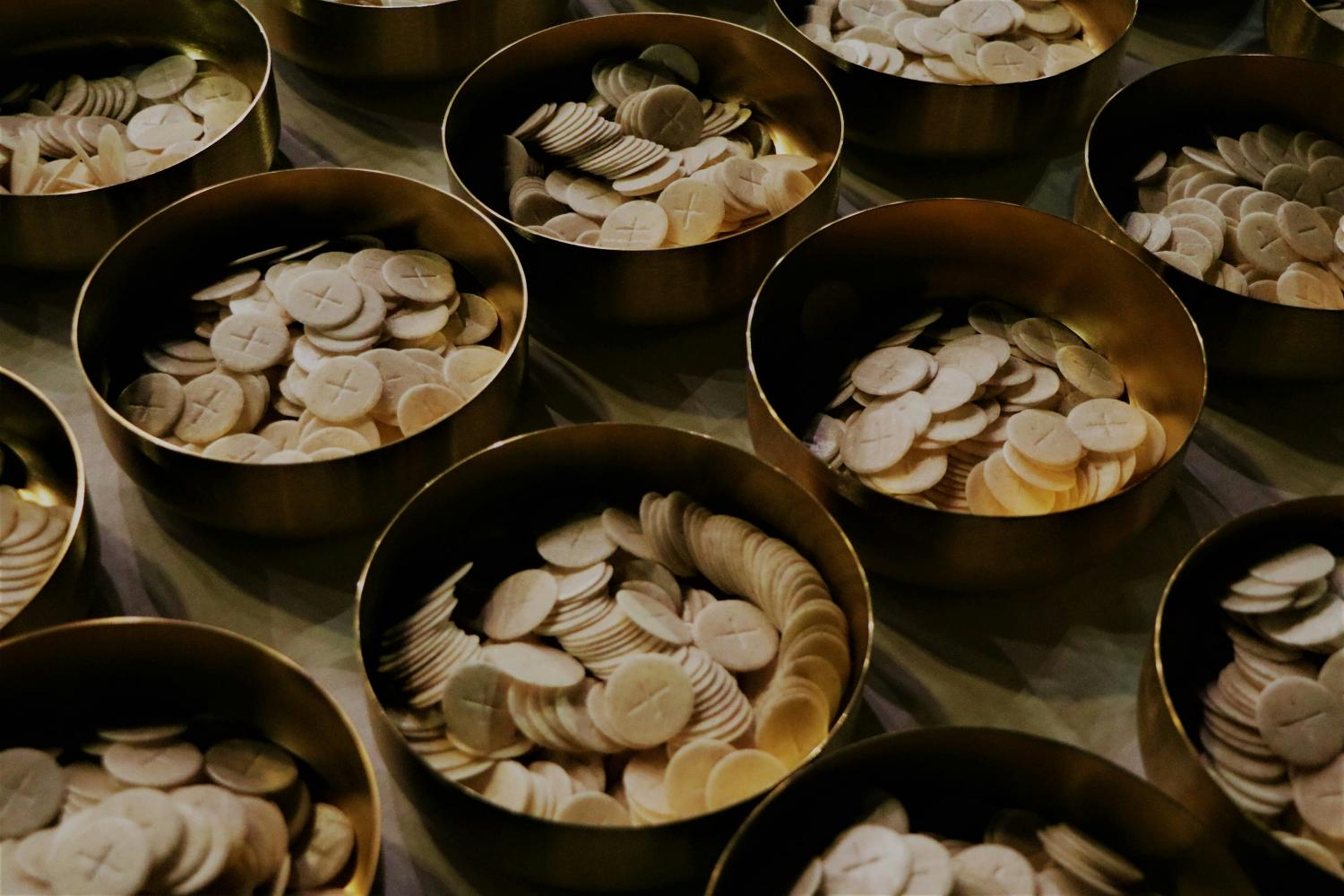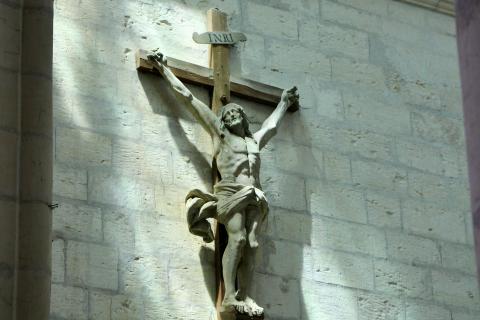
When it comes to Catholics and politics, there are few things that raise people’s hackles as much as public figures being refused Holy Communion. President Biden, House Speaker Nancy Pelosi, and even their supporters are only some of the most recent figures to have been thrown into that particular limelight, with Catholics and non-Catholics alike offering their piece as to whether bishops are right or wrong for giving or refusing them the sacrament.
The issue’s gone a little quieter recently, until a British politician kicked up a bit of dust a couple of weeks ago when he was refused the sacrament by his parish priest after he voted in favor of the UK’s assisted dying bill. Describing the decision as “outrageous,” the Member of Parliament, Chris Coghlan, claimed that such treatment “undermines the legitimacy of religious institutions.”
It’s quite the totalizing comment to make. But where does such a sentiment come from? It’s a question worth probing, given the rising prominence of Catholics in politics without a correlating rise in Catholic-minded political positions, necessarily. There’s a lot more dust that’s primed to be kicked up, a lot more hackles positioned to be raised. So what makes us question the Church’s legitimacy in doing something like this? Why can it feel like an overreach?
Here’s one habit of mind that could be at work: modern, Enlightenment-informed democratic ideals have become the measure for everything. Taking a cue from people like Kant, democratic ideologues have insisted that personal autonomy is the only dignified form of human life. My right to vote, and my right to say whatever I want, are two rights that are more or less written in the stars, and no authority has the right to get in the way of them. So religion has been essentially privatized, and made into more like a personal hobby or matter of taste than a set of truths about reality. I get to practice it when and how I want; you can do your religious thing, and I’ll do mine. The problem comes when so-called Catholics embrace this privatized, Enlightenment view, and find it “outrageous” that they cannot, in fact, participate as they want in whatever they want. This seems an infringement on their personal rights – illegitimate, overreaching, an imposition of an outdated, draconian way of thinking. Institutions are for free engagement, after all, and have no prerogative for seeking doctrinal and moral purity among their members.
But that’s not a Christian view. The Christian view, of course, holds that the legitimacy of an institution derives from its rootedness in reality – in the truth about who we are, what we’re made for, and what will get us there. As such, part of an institution’s job is to form and shape its members to better perceive and respond to that reality. Institutional legitimacy, then, doesn’t just come from the expanse of “freedom” that the given institution is willing and able to offer (especially when we’re dealing with a definition of freedom essentially equating with privacy). It comes from their capacity to image and insert us into reality more deeply.
But there’s a second habit of mind that seems present here, too, one on the spiritual side of things, and it has to do with taking the truth of the sacrament of the Eucharist seriously. The Eucharist is a sacrament of union, knitting us together with God and our fellow believers – again, it’s a sacrament, meaning both sign and potency. It binds us to the body of Christ, a body of which we’ve already declared ourselves to be part in the ordering of our minds and the intentions of our wills. This is the reason for the concern to receive the sacrament in a state of grace: if we don’t, we’re not in truth in union with Jesus or our brothers and sisters, spiritually, and so we’re acting in defiance of reality, physically.
So to think that I should be able to receive the sacrament when and where I want is to misunderstand what a sacrament really is. The sacrament of marriage provides a good analogy here. The marital act is a material sign and seal of the spiritual union of the couple; their physical union is a representation of the union of their minds, wills, and hearts, the new creation which God has brought about. So we don’t think it ungenerous or uptight for married people not to invite just anyone into their beds – “just anyone” hasn’t become part of the significant commitment and special union that they have. For “just anyone” to demand to partake of the physical sign, then, without the union of mind and spirit, would be to demand to partake in a lie.
The Eucharist is not an exclusive sacrament like marriage is, but the principle holds: when we’re not living in Christ in mind and will, we’re only moving further from the truth, further from the real, when we partake of the sign that says we are. Of course, this isn’t a hugely difficult notion to understand, but it runs counter to our notions of autonomy and subjectivity. We want to be able to do what we want, and expect to. Hence the cultural and sometimes personal bristling, the sympathy we might initially, perhaps unwittingly, have for Coghlan’s hostility.
None of this, surely, means that a priest needs to be a ferocious watchdog over the Blessed Sacrament, or spend his time screening his parishioners’ politics to see who is worthy to receive Him. But in cases where gravely sinful acts are publicly known, and cause real scandal, the priest is to be a guardian over the Sacrament that signals and makes present truths about who we are that have real gravity – real, well, reality. Contrary to Coghlan’s opinion, this is a legitimate, and good, use of the institutional authority invested in the priest who refused him. Indeed his guardianship is for the sake of the one who would receive the sacrament in a state of rebellion as much as it is for the sake of the Church and the truth. It’s a genuine act of mercy toward him or her, who need be protected from venturing further from truth – the truth which the Church has the duty and privilege to proclaim, straightforwardly and clearly, such that it can continue to offer the hope and healing it promises to.
A Catholic Mass was celebrated in England's historic Canterbury Cathedral in honor of St. Thomas Becket, which served as a focal point for many who have begun to point to a potential Catholic resurgence in that nation.
In Vietnam, 40 new priests were ordained in the month of June.
Parental rights in education have been vindicated in the Supreme Court's ruling in Mahmoud v. Taylor, one thinker explains.


